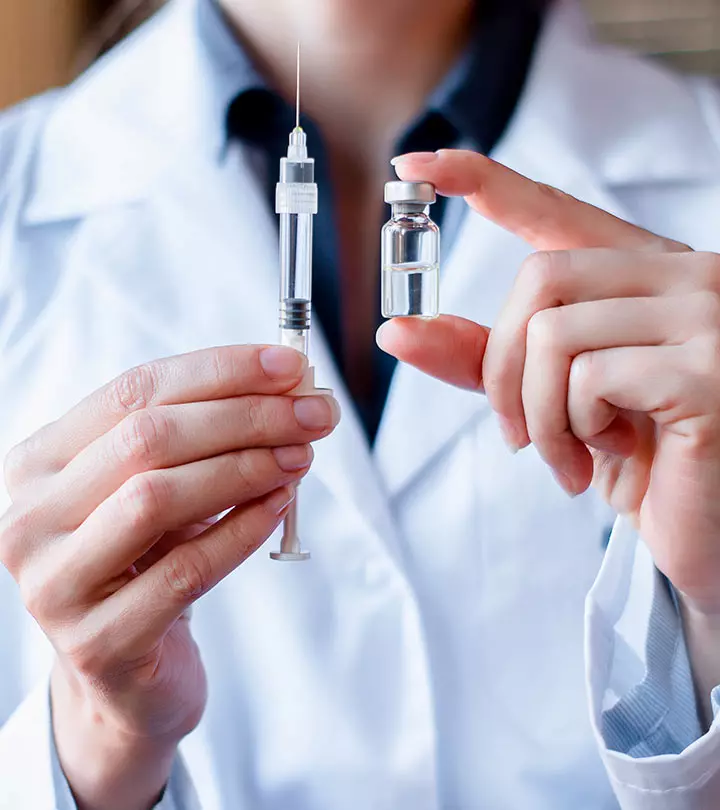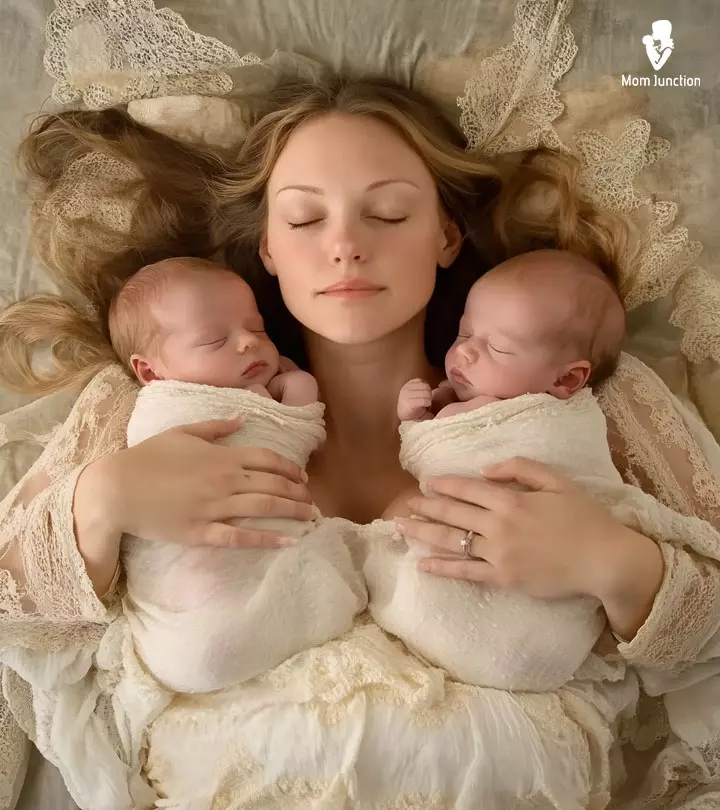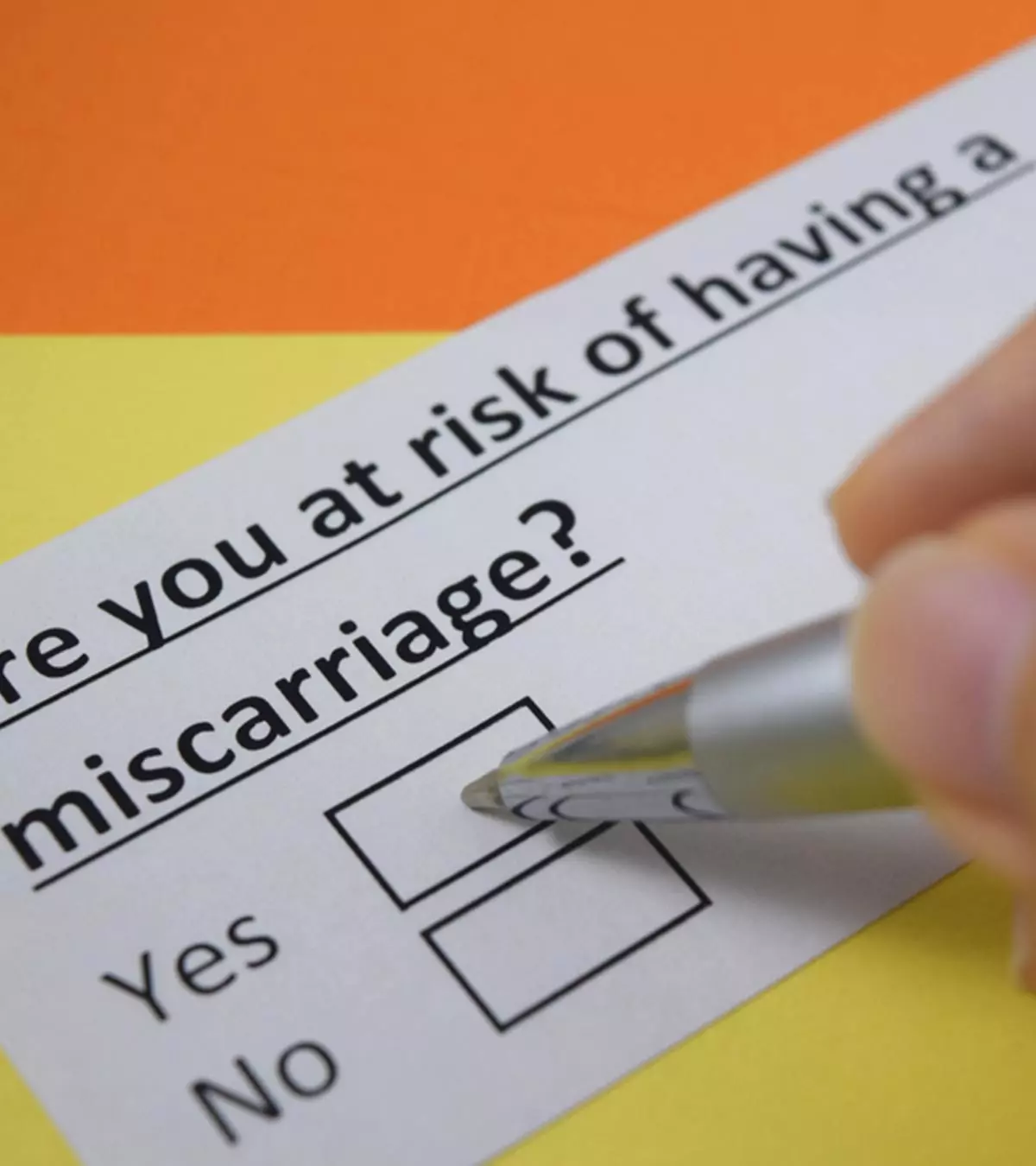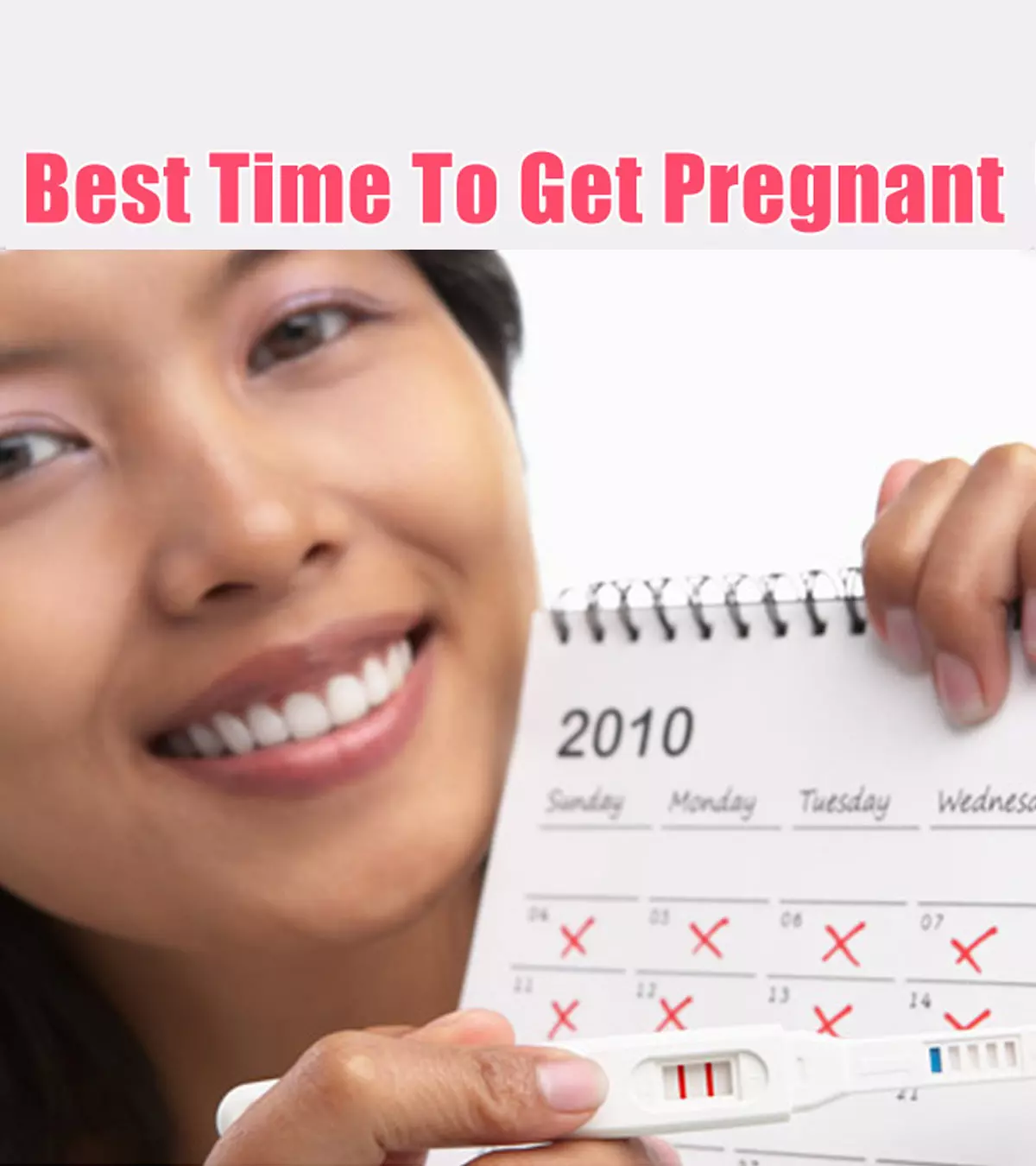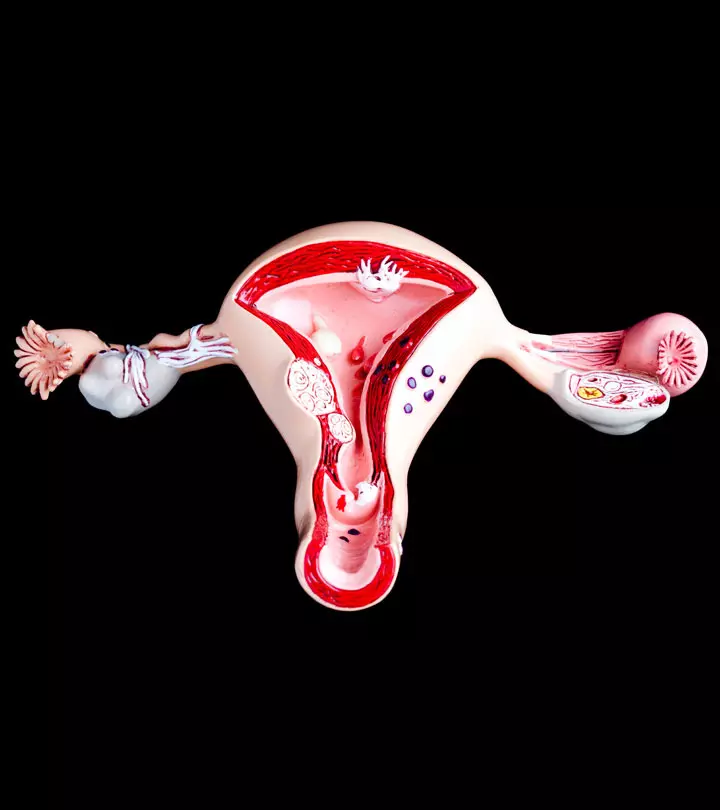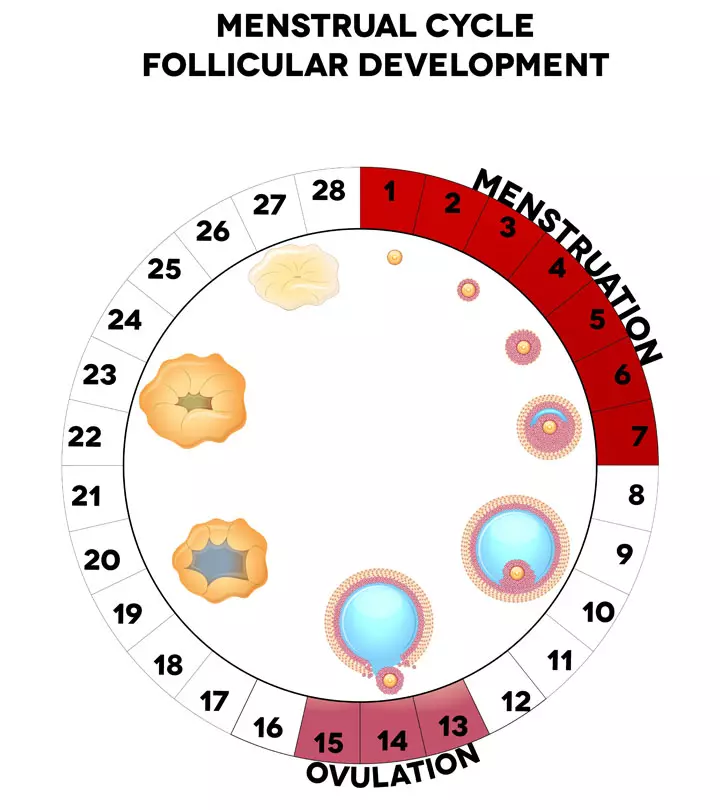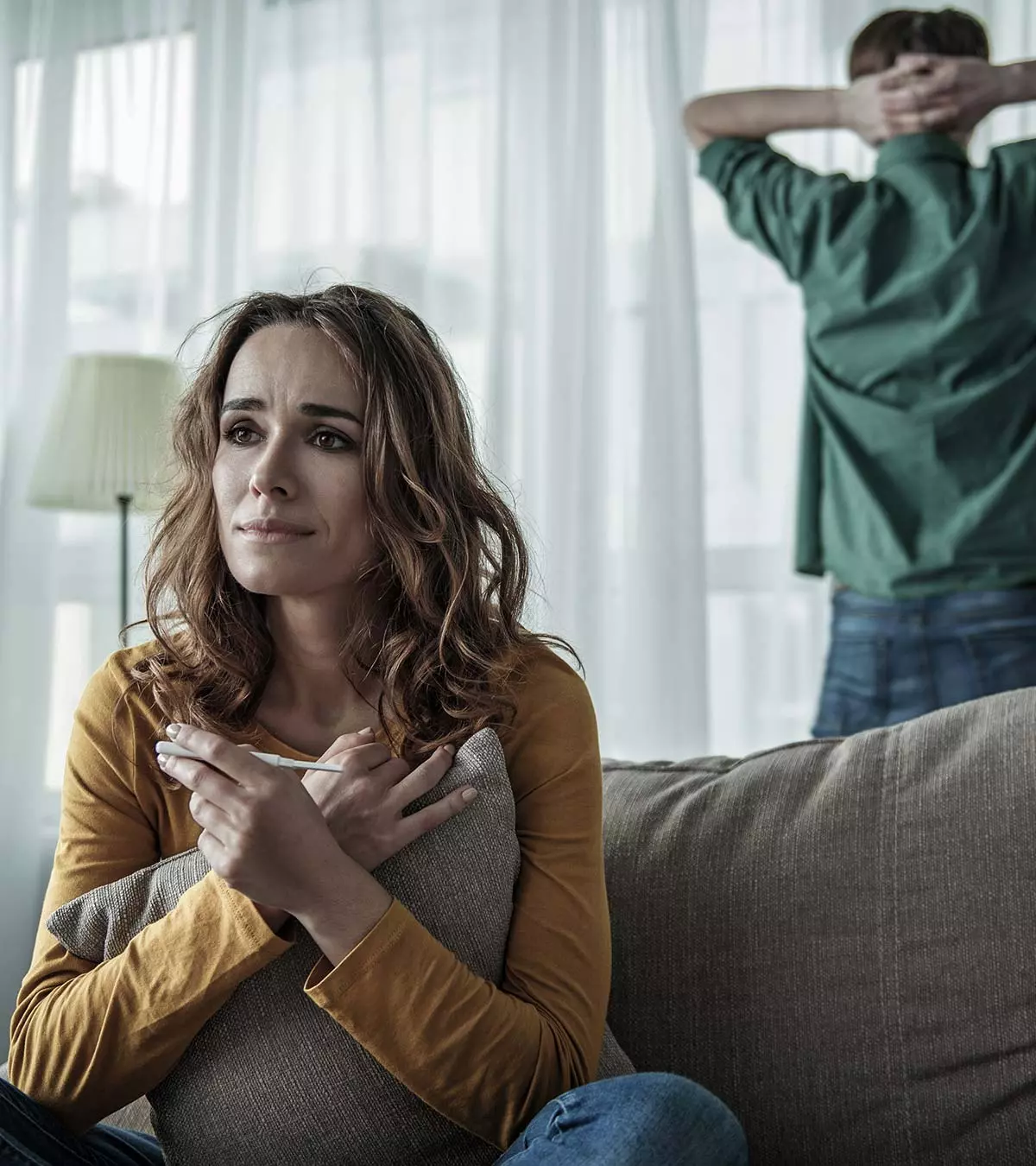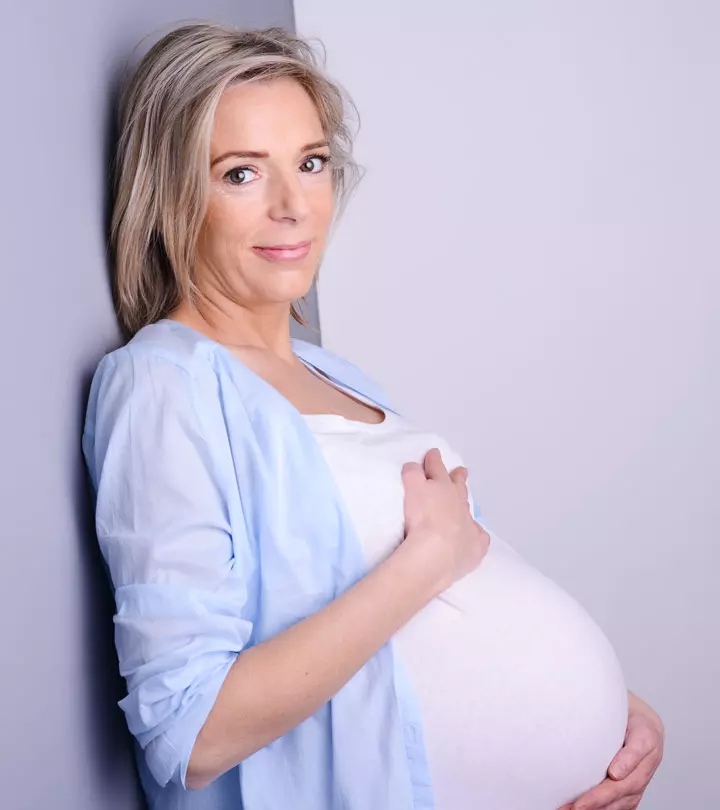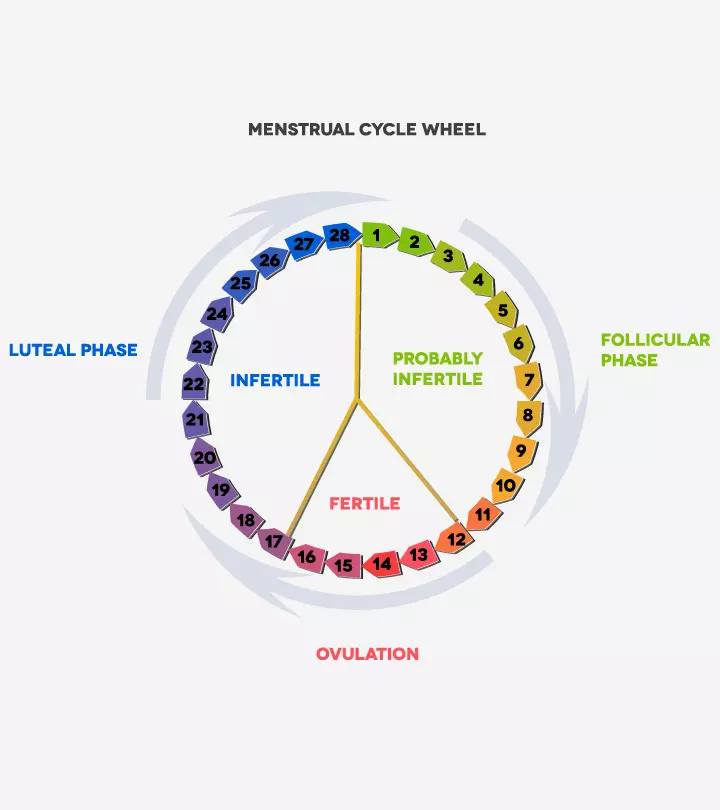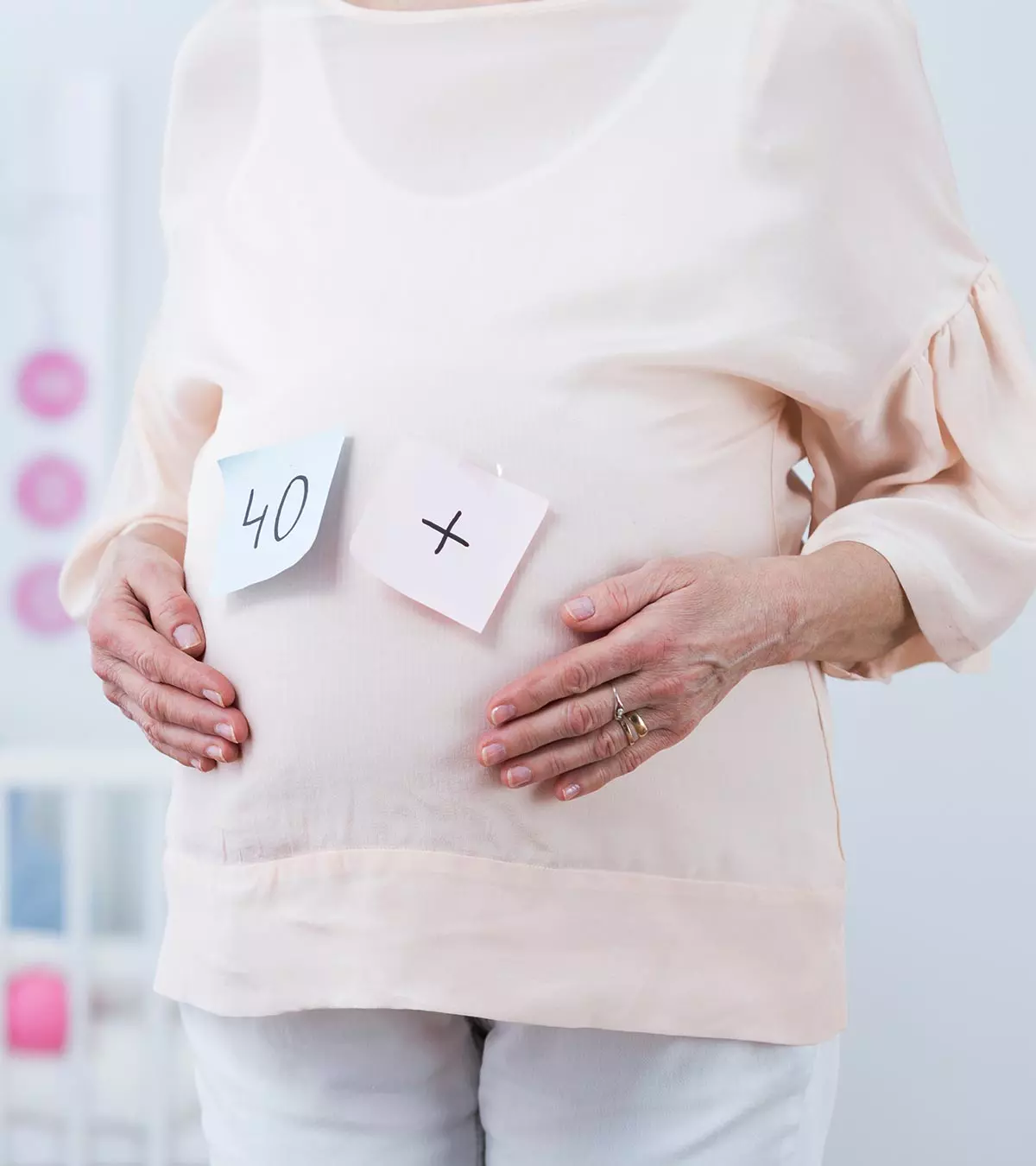
Image: Shutterstock
The consequences of pregnancy at 45 or after have been much debated by experts. So, when Kelly Preston got pregnant at 47, the news of her late pregnancy spread fast. People discussed how advancements in science had allowed her and her actor husband, John Travolta, to conceive late. In recent years, not only celebrities but several other women have been delaying having a baby due to personal or professional reasons. According to some researchers, pregnancies in older women cannot be managed as easily as in younger women. However, other researchers believe age is not a barrier to getting pregnant. Prospective parents must understand the implications of conceiving later in life and consider factors like medical history, personal circumstances, and lifestyle choices that greatly impact this decision. Read the post to know how older age may affect pregnancy and how you can stay healthy while pregnant.

Key Pointers
- Conceiving naturally after 45 becomes difficult as fertility decreases with age.
- Preterm labor, gestational diabetes, and pre-eclampsia are common problems faced by women who are pregnant at age 45.
- Genetic disorders such as Down syndrome are prevalent in babies born to mothers aged 45 and above.
- With the increase in the mother’s age, there is an increased risk of miscarriage, stillbirth, and other chromosomal abnormalities.
- Indulge in a well-balanced diet, exercise, and prenatal care, and stay away from stress, smoking, and alcohol, for a smooth pregnancy.
Can A Woman Get Naturally Pregnant At The Age Of 45?
Yes. Though rare, it is possible to get pregnant at 45, without the use of fertility treatments (1). MenopauseiThe stoppage of menstruation for 12 months as a result of estrogen deficiency may be around the corner, but unless you have not had periods for 12 consecutive months, there are chances of pregnancy. Also, no two women are on the same terms of health and can experience menopause a little earlier or later.
While pregnancy after 45 is possible, it is considered a high-risk pregnancy. This is because fertility decreases with increasing age, and concerns such as miscarriages, gestational diabetes, and preterm birth become common. There is also an increased risk of having a baby with chromosomal abnormalitiesiGenetic disorders caused by the presence of extra or missing chromosomes in a person's cells such as Down syndromeiA condition where an individual has an additional chromosome or an extra segment of a chromosome . Your doctor may advise whether pregnancy is good for you and guide you to ensure a safe pregnancy.
According to the US Centers for Disease Control and Prevention (US CDC) data, approximately 10.3% of all births among women aged 42 and older were conceived through assisted reproductive technology (ART), a type of fertility treatment (2). Therefore, we can assume that the increasing rate of pregnancy over 45 is due to fertility procedures (3)
What Are The Chances Of Getting Pregnant At 45?
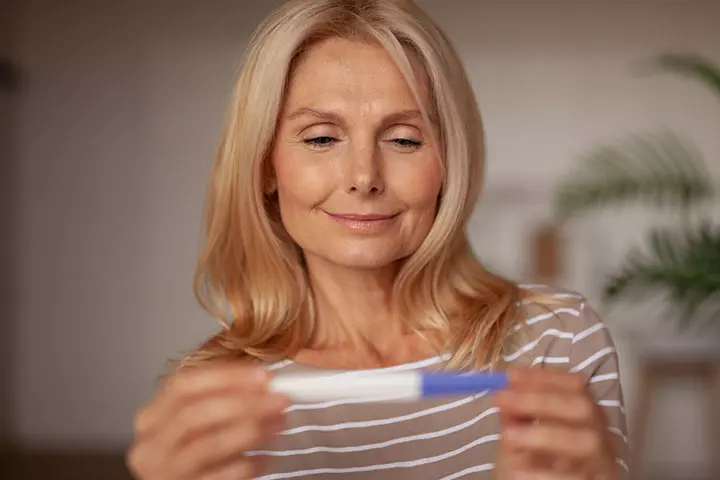
Age-related infertility is a significant factor to consider when trying to get pregnant at 45 or after. Getting pregnant at 45 or after is in no way the same as getting pregnant in the 20s. A 30-year-old woman has a 20% chance of conceiving in any given month, which plummets to 5% for a 40-year-old (4). At 45, a healthy pregnancy with your eggs comes down to 1%. Through IVF using donor eggs, the chances increase to 70 to 75%.
However, these are mere statistics and there are most certainly some unexpected stories. Tracy Slater, a writer and mother, shares her experience of getting pregnant naturally at 45. She says, “I got pregnant naturally at 45 and a half, and I delivered a healthy baby four months after I turned 46, our first and only child. I conceived this child after more than four years of IVF and other fertility treatments. During these four years, I’d had 2 miscarriages and a whole slew of diagnoses for my infertility. I’d been diagnosed with high FSH, a luteal phase defect, a blood clotting disorder, low progesterone, and inconsistent ovulation. I tried acupuncture, herbs, fertility yoga, and multiple fertility diets and dietary restrictions. When I turned 45, we decided I’d stop all medical treatment, because the statistics on pregnancy at or past 45 with a woman’s own eggs were so dire. Still, my husband and I continued to try to monitor my body’s cycles and to try to conceive a child naturally. One of those months I got pregnant and now our child is two, and perfectly healthy (i).”
 Did you know?
Did you know?Once you have conceived, you will experience pregnancy symptoms.
What Are The Signs And Symptoms Of Pregnancy After 45

The symptoms would be similar to the ones women face at their younger age in the pregnancy. But in most cases, they are taken to be the signs of menopause.
The signs and symptoms could be frequent urination, mood swings, headaches, breast changes, incontinence, fatigueiThe feeling of tiredness and exhaustion , missed periods, nausea, and backaches.
As women over 45 will be at a higher risk of pregnancy complications (5).
What Are The Risks To The Mother In A Late Pregnancy?
The risks increase considerably with age. If you conceive at the age of 45 and more, you are at a higher risk of certain health conditions, including (6):
- Gestational diabetes
- High blood pressure
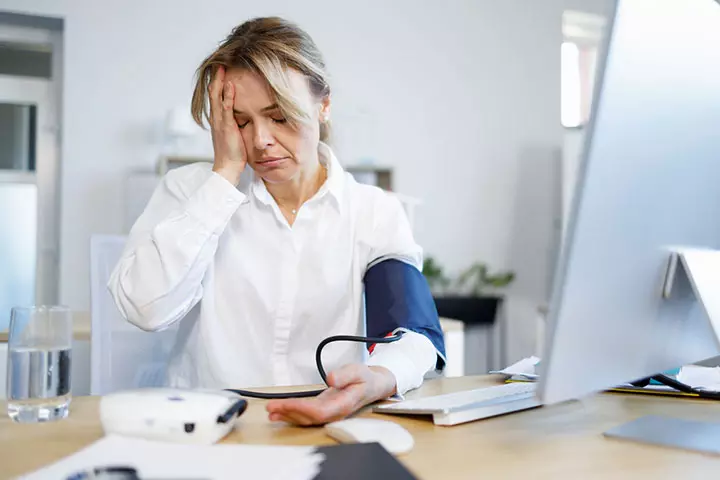
- Placental problems, where the placenta covers the cervix (placenta previa)
- Cesarean delivery
- Inefficient uterine contractions to push the baby out
- Ectopic pregnancy, where the embryo implants outside the uterus
- High miscarriageiPregnancy loss before 20 weeks gestation rate that is one in two
- Harder on body as it is difficult to lose baby weight and regain the body shape
- Emotional challenges related to concerns about health risks
 Did you know?
Did you know?A study analyzed 79 cases where mothers were 45 years old (44 cases), 46 years old (21 cases), or 47 and above (14 cases). According to the results, nearly 46.8% of the mothers faced complications, with gestational diabetes (12.7%) and preeclampsia (10.1%) being the most common (7).
Not just for the mother, a late pregnancy increases the risk factor for the baby as well.
What Are The Risks To The Baby Born To Mothers Over 45?
At around 40, the risk of Down syndrome is one in 100, which increases to one in 10 by the age of 49. There is also an increased risk of other chromosomal abnormalities, stillbirthiThe loss or death of an infant before or during delivery , and premature labor (8). Dr. Betsy Greenleaf, MD, a board-certified urogynecologist and pH-D feminine health advisor from Howell, New Jersey, says, “Older eggs start having more genetic abnormalities, affecting a normal pregnancy. These abnormalities are seen 40% of the time in those 40-45 and close to 99% of the time in those older than 45.”
For these reasons, 45 may not be the best age to get pregnant naturally. Therefore, many older women who want to get pregnant prefer donor eggs assuming the risk is low with younger eggs. Before you make a final decision, discuss tests for genetic screening such as amniocentesisiA prenatal test that extracts amniotic fluid from the uterus surrounding the baby with your healthcare practitioner.
However, there are ways in which you can ensure that a late pregnancy at 45 or after is a healthy pregnancy.
How To Have A Healthy Pregnancy At 45?
In order to have a safe and healthy pregnancy, you may take the following measures, irrespective of your age:
- Indulge in proper prenatal care
- Ensure proper maternal nutrition by following a balanced, nutrient-rich diet
- Exercise regularly
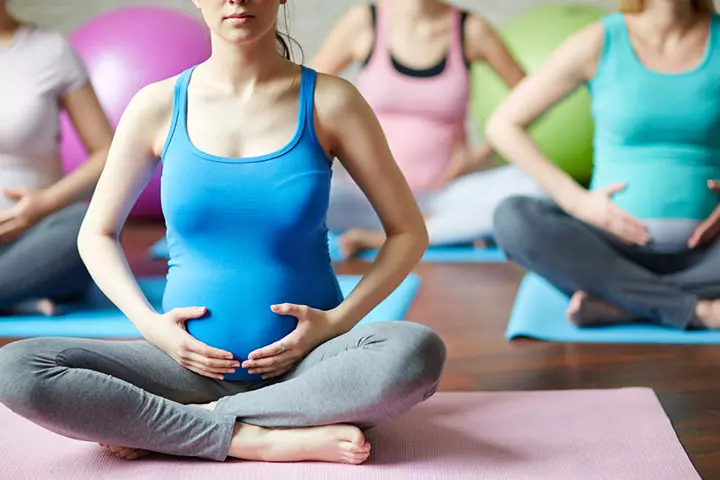
- Maintain a healthy weight
- Practice stress management with techniques like meditation and yoga
- Maintain adequate hydration and avoid alcohol and smoking
 Quick tip
Quick tipYour health practitioner will give you more information after evaluating your complete health and family history.
After assessing your complete health history, your healthcare provider will provide you with further information to aid in your family planning.
What Are The Advantages Of Having A Baby Later In Life?
Remember, the advantages of becoming a parent later in life do not outweigh the benefits of having a baby in your late 20s or early 30s. However, here are some positive points:
- With more life experiences, you are aware of the maternal health risks and situations that accompany pregnancy and childbirth.
- If it is your second child, you already have experience in bringing up a child.

- Material wealth and marital status are at a defined level.
Sometimes, you may have decided to not have children, but want to reverse your decision later in life. Let’s see its possibility in the case of a tubal ligation.
Can You Get Pregnant After 45 If You Had Tubal Ligation?
Tubal ligation is a sterilization procedure to prevent pregnancy. However, in rare cases tubal ligation reversal could happen, resulting in pregnancy rates of one in 1,000 after the first year and two in 10 to 1,000 after five years. According to a US CDC study, “Although pregnancy after sterilization is uncommon, it can occur and may be ectopic (9).“ Though the possibility is low, there is still a chance of pregnancy. If you have tried to get pregnant and the symptoms seem promising, then check with your healthcare practitioner as you can have an ectopic pregnancy after this procedure (9).
In the next section, we bring you a few stories of women who conceived late in life!
Some Stories Of Pregnancy Over 45
Here are the real-life stories picked from Quora about women who conceived after 45. We bet they would definitely offer you hope, comfort, and inspiration if you are planning to get pregnant at this age.
Carole Hobson, a 58-year-old barrister, and social worker underwent five rounds of in-vitro fertilization (IVF) treatment using donor eggs and sperm to fulfill her dream of becoming a mother. She conceived using donor eggs taken from a 24-year-old Indian woman and sperm from a Scandinavian engineering graduate.
A 48-year-old woman from Minnesota was pregnant through IVF using a donor egg.
Anita Arora, a 46-year-old from Southfields, was found to be pregnant when she came to the hospital complaining of early menopause. The doctor performed a C-section delivery at 29 weeks and the baby was put in a neonatal unit for recovery.
Frequently Asked Questions
1. How many eggs does a woman have at 45?
It is not possible to predict the exact number of eggs present at age of 45. Human ovaries contain several millions of non-growing follicles (NGF) from before birth, and they keep declining with age and ultimately lead to menopause. By 40 years of age, only 3% of the pre-birth NGFs are present (10).
2. Can I get pregnant with my own eggs at 45?
For a woman above 40, the chances of achieving pregnancy are maximized if you opt for donor eggs. According to experts, by 45, Assisted Reproductive Technology (ART) using donor eggs is the only reasonable alternative. However, it is best to consult your fertility specialist for guidance (11).
3. What are the symptoms of poor egg quality?
Dr. Greenleaf observes, “Symptoms of poor egg quality may begin with irregular periods. Menstruation may be erratic, with missed periods, longer lengths of periods, and heavy bleeding. Other symptoms include moodiness, sleep disorders, night sweats, hot flashes, weight gain, bloating, brain fog, and typical symptoms associated with perimenopause and menopause.”
4. Do women still ovulate at 45?
Yes. Women can ovulate at 45. However, the ovulation frequency may decline with age. Women usually enter menopause and stop ovulating between 45 and 55 years (12).
Pregnancy at 45 or after might pose several challenges. From conception to delivery, pregnancy must be carefully monitored at this age. Due to the advanced maternal age, the mother and the fetus could be at an increased risk of developing a few complications. However, with careful planning, fetal monitoring, and prompt medical intervention, pregnancy after 45 could lead to the birth of a healthy baby. Hence, if you wish to become pregnant at 45, consult your medical practitioner to weigh the pros and cons. Consider both the benefits and drawbacks before making your decision.
Infographic: Are Frozen Eggs A Better Option To Start A Family After 45?
Egg freezing is a choice for women who plan to delay motherhood due to personal reasons and careers. Egg freezing before age 35 increases the chance of successful pregnancy since more eggs can be retrieved and preserved. Go through the infographic to know more about egg freezing benefits if you plan pregnancy after 45.
Some thing wrong with infographic shortcode. please verify shortcode syntax
Illustration: Pregnancy At 45 Or After: To Have Or Not To Have
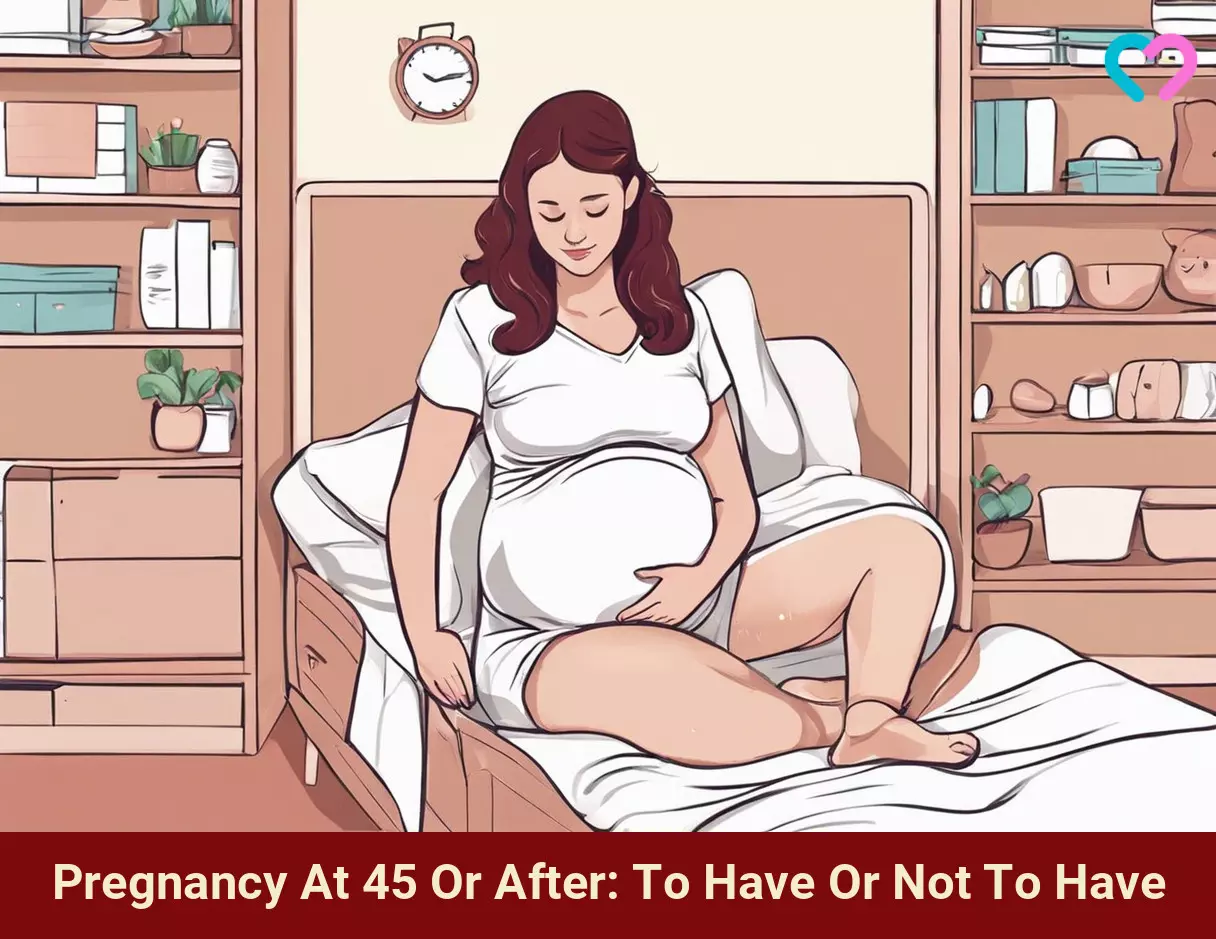
Image: Stable Diffusion/MomJunction Design Team
Watch this motivational video about a woman getting pregnant at 45 and get answers to questions that you might have regarding the same.
Personal Experience: Source
MomJunction articles include first-hand experiences to provide you with better insights through real-life narratives. Here are the sources of personal accounts referenced in this article.
i. An honest take on getting pregnant naturally at 45.https://thegoodshufu.wordpress.com/2016/05/02/how-i-got-pregnant-naturally-at-45/
References
- Rosa Rendtorff et al.; (2017); Pregnancies in Women Aged 45 Years and Older – a 10-Year Retrospective Analysis in Berlin.
https://www.ncbi.nlm.nih.gov/pmc/articles/PMC5383433/ - National ART Summary.
https://www.cdc.gov/art/php/national-summary/?CDC_AAref_Val=https://www.cdc.gov/art/reports/2025/summary.html - Daniela Cutas and Anna Smajdor; (2015); Postmenopausal Motherhood Reloaded: Advanced Age and In Vitro Derived Gametes.
https://www.ncbi.nlm.nih.gov/pmc/articles/PMC4461075/ - Age.
https://www.yourfertility.org.au/everyone/age - D H Kushner; (1979); Fertility in women after age forty-five.
https://pubmed.ncbi.nlm.nih.gov/45103/ - Zena Stein and Mervyn Susser; (2000); The risks of having children in later life.
https://www.ncbi.nlm.nih.gov/pmc/articles/PMC1071137/ - Dildy, G A et al.; (1996); Very advanced maternal age: pregnancy after age 45.
https://pubmed.ncbi.nlm.nih.gov/8828432/ - J K Morris; (2005); Risk of a Down syndrome live birth in women 45 years of age and older.
https://pubmed.ncbi.nlm.nih.gov/15849789/ - Herbert B. Peterson et al.; (1997); The Risk of Ectopic Pregnancy after Tubal Sterilization.
https://www.nejm.org/doi/full/10.1056/NEJM199703133361104#t=article - W. Hamish B. Wallace, Thomas W. Kelsey; Human Ovarian Reserve from Conception to the Menopause; PLOS ONE.
https://journals.plos.org/plosone/article?id=10.1371/journal.pone.0008772 - Age and Fertility (booklet); The American Society for Reproductive Medicine
https://www.reproductivefacts.org/news-and-publications/patient-fact-sheets-and-booklets/documents/fact-sheets-and-info-booklets/age-and-fertility/ - Perimenopause;
https://my.clevelandclinic.org/health/diseases/21608-perimenopause - Normal Ovarian Function.
https://www.rogelcancercenter.org/fertility-preservation/for-female-patients/normal-ovarian-function - Angela Bianco et al.; (1996); Pregnancy Outcome at Age 40 and Older.
https://www.sciencedirect.com/science/article/pii/0029784496000452 - Older Moms, Healthy Babies; Stanford Medicine Children’s Health.
https://www.stanfordchildrens.org/en/topic/default?id=older-moms-healthy-babies-1-1901
Community Experiences
Join the conversation and become a part of our nurturing community! Share your stories, experiences, and insights to connect with fellow parents.
Read full bio of Dr. Sangeeta Agrawal
- Dr. Betsy Greenleaf is a board-certified Urogynecologist and pH-D Feminine Health Advisor with over 20 years of experience. She is the founder of The Pelvic Health Institute at Greenleaf Health and Wellness in Howell, New Jersey.
 Dr. Betsy Greenleaf is a board-certified Urogynecologist and pH-D Feminine Health Advisor with over 20 years of experience. She is the founder of The Pelvic Health Institute at Greenleaf Health and Wellness in Howell, New Jersey.
Dr. Betsy Greenleaf is a board-certified Urogynecologist and pH-D Feminine Health Advisor with over 20 years of experience. She is the founder of The Pelvic Health Institute at Greenleaf Health and Wellness in Howell, New Jersey.
Read full bio of Rebecca Malachi
Read full bio of Dr. Ritika Shah
Read full bio of Reshmi Das







